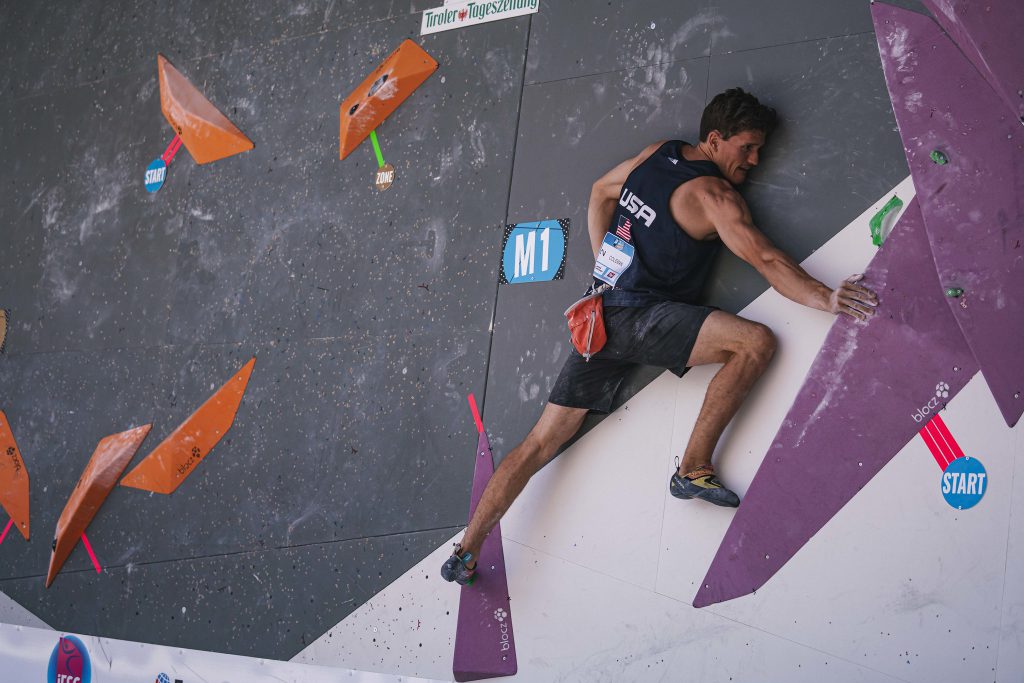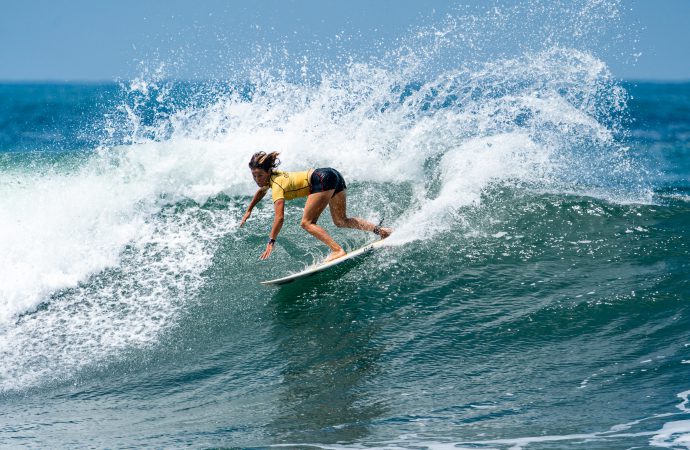Dr. Madeleine Orr of the Sport Ecology Group explores the sustainability commitments of notable Olympic sports ahead of Tokyo 2020. Part Three includes surfing, climbing and baseball/softball
The beauty of the Olympic and Paralympic Games is the breadth and diversity of their events, but one area of commonality among many of the sports on show at the Tokyo 2020 Summer Games is a greater focus on environmental sustainability.
The Sustainability Report is exploring some of the recent work and initiatives of the international sports federations being represented. In this edition, we’re focusing on three of the new sports to enter the Olympic arena, surfing (ISA), climbing (IFSC) and baseball (WBSC).
International Surfing Association (ISA)
“As surfers, but also citizens of the world, we strongly believe in the need for a clean and healthy ocean. Few other sports have as much direct contact with the ocean environment as we do, so it is part of our life and duty to do anything we can to preserve and protect this cherished part of our Earth.”
When, in 2018, the ISA made sustainability a “core value and priority”, its president Fernando Aguerre stressed the intrinsic link the sport has with the natural environment as its key motivation.
In the subsequent three years, the international federation has taken part in a number of initiatives to reinforce this commitment. As well as becoming a signatory to the UNFCCC Sports for Climate Action Framework – in which the ISA has pledged to measure, reduce and offset its carbon emissions in line with the Paris Climate Agreement – the organisation has also joined the CleanSeas partnership overseen by the IOC and United Nations as a means to address the ocean plastics crisis.
As part of its commitment to the CleanSeas Campaign, the ISA set a number of sustainability goals, including electing a sustainability partner to help implement environmental projects, develop a strategic sustainability plan, and include sustainability within its education programme for coaches and officials.
As with many sports, the ISA has identified its events as a good platform for promoting positive behaviour and attitudes. Through its World Championships, it has focused on three key areas: the reduction of plastic waste, the alignment of commitment to sustainability, and athlete engagement.
For the latter, ISA teamed up with Surfrider to host beach clean-ups with 100 participants during the 2018 and 2019 ISA World Junior Surfing Championships, with further clean-up events occuring at the 2019 World Surfing Games in Japan and 2019 World Longboard Surfing Championships.
International Federation of Sports Climbing (IFSC)
Another Sports for Climate Action Framework signatory, the IFSC has set its sights on tackling one area of negative environmental impact that proves to be complicated for many sports organisations – travel. Last year, the federation partnered with CompensAid, a programme that supports the development and production of more sustainable aviation fuel that claims to reduce emissions by 80% compared with normal jet fuel.
The IFSC has been investing in the project as a way to compensate for its own travel-related carbon emissions. In addition, its partnership with CompensAid has supported a reforestation initiative in the Central American nation of Nicaragua.

“Sustainability has always been one of Sport Climbing’s pillars and, on top of that, it is part of who we are,” said IFSC president Marco Scolaris. “Therefore, to be part of this programme has been a natural step for the IFSC. Apparently a small one, but full of significance.”
More broadly, the IFSC published its first edition of Sustainability Guidelines, in line with the IOC’s Sustainability Strategy. The guidelines are broken down into two sections: corporate sustainability and sustainability of IFSC events.
In terms of the former, the organisation has set five priorities.The first two focus on considering the environment when planning infrastructure and hosting competitions on natural sites, and the development of a sustainable procurement code to engage suppliers.
Mobility, and the reduction of emissions related to transport, is the third priority. Creating a positive environment for the IFSC’s workforce and addressing climate change – through a reduction in energy consumption, using more sustainable materials, reducing the impact of food and beverage provision, and cutting waste – are the final two priorities.
In terms of events, the IFSC has set a number of targets to reduce their negative environmental impact. Encouraging the use of public transport and the sharing of vehicles for spectators forms a key part of reducing impact around mobility, and the reduction in the number of nights officials and athletes spend in hotel rooms during events has also been outlined as a way to slash accommodation-related CO2 emissions.
A number of sustainability issues at the venue will be taken into considerations, such as: the local natural environment and biodiversity, new venues not being built close to natural heritage sites, conserving water resources, minimising energy use, and maximising reuse and recycling.
Catering, procurement and communication/engagement form part of the IFSC’s strategy when it comes to reducing the impact of its events.
World Baseball Softball Confederation (WBSC)
Focusing effort and resource on implementing sustainability technology within its new HQ has been one of the key policies of the WBSC. Just over a year ago, its building in the Olympic capital Lausanne (below) was unveiled with a number of sustainable features.

More than 20 solar panels on the roof of the building produces 90% of its electricity, while its underfloor heating and cooling system and LED lighting (which features all over the building) reduces energy consumption.
“The official opening of our new headquarters is one of the proudest moments in WBSC’s short but spectacular history, “ Riccardo Fraccari, its president, said during the opening. “Not only does this office reflect our commitment to the IOC’s vision of creating a better world through sport, it also reflects our commitment to Olympism and all of its wonderful values”
The centrepiece of the building – a staircase inspired by the batter’s swing – was made from 100% recyclable Krion which, according to the WBSC, has the “ability to clean the air and prevent the formation of bacteria”.
Its location was selected because of its proximity to public transport stops and bicycle parking facilities have been integrated so that employees can ride to work.
Like both the ISA and IFCS, the WBSC is also a signatory to the UNFCCC Sports for Climate Action Framework.
Get more content like this by signing up for our newsletter here.
Main image credit: Ben Reed/ISA










Leave a Comment
Your email address will not be published. Required fields are marked with *